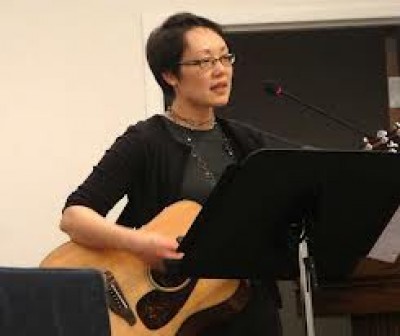How to Be a Cantor in a Catholic Church

A cantor is a chief singer who leads sung responses at a congregation in a Catholic church. The tradition was first introduced to the Catholic church during initial days of Christianity and it has its historical roots in Judaism. Both religions have kept promoting this tradition since then.
Anyone with some natural singing talent can become a cantor at a Catholic church. It is most likely that you start with signing in a choir and then gradually excel to lead the congregations as a standalone cantor.
The cantor should be able to read the music and lead the tunes and it is the stage when a cantor is trusted with a lead singer responsibility. It is not just singing but teaching songs to other as well, so the ability to read music notes is a must.
Also, a cantor’s ability to play a music instrument will add to his abilities to lead sung responses at a congregation. The cantor sings on his own with an instrument or is accompanied by an organ of choir. Whatever is the way if you posses a mediocre talent for singing, it is time for you to contact local your church and offer to become a cantor.
Instructions
-
1
Natural Singing Talent
Without having some talent for singing you cannot claim yourself qualified to become a cantor. With some singing skills, a passion for religion and eagerness to learn can help your chances to become a cantor. -
2
Ability to Read Music
An ability to read music notes is a plus, because once you are trusted with a lead cantor role, you will be required to teach songs to others. Without being able to read music it is difficult to teach others and sing out of a choir setting. -
3
Contact Your Local Church
If your are confident enough about your talent and ability, it is time for you to go to your local church to contact parish priest, music ministry, choir director or pastor associate and offer to become a cantor. -
4
Volunteer for Role
Once you are in touch with a person who arranges congregation, you are likely to be not given full time singing role or may be any singing role. This is the chance for you to volunteer yourself for the task on any weekend, when there are more than one congregation. -
5
Fit in Weekly Schedule
Once in, you should get in touch with the person who arranges for cantors for different congregations over the week or on the weekend. You can use your skills to fit in one or more slots in the schedule. -
6
Take Time Out for Practice
After you start singing in congregations regularly, do not consider it as an end for you. Take out time for practice on a regular basis and practise a lot during initial phases of becoming a cantor. -
7
Take Outside Help
You can also consult a senior singer or cantor for a regular advice and help, and if someone is willing to become your mentor, it is great help for you. This will help you to progress in your ambition quickly.







